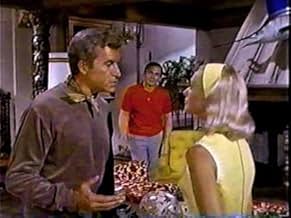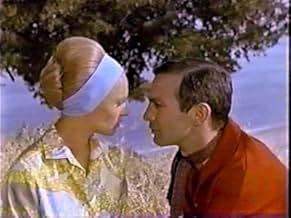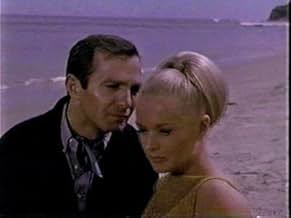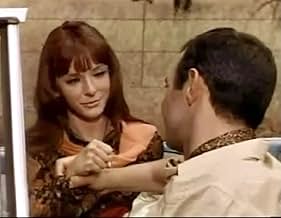The doctor tells a successful lawyer that he is terminally ill and will die in less than two years.The doctor tells a successful lawyer that he is terminally ill and will die in less than two years.The doctor tells a successful lawyer that he is terminally ill and will die in less than two years.
- Nominated for 8 Primetime Emmys
- 12 nominations total
Browse episodes
Storyline
Did you know
- TriviaSome sources claim that Ben Gazzara's character suffered from leukemia. However, in a 1998 interview conducted by television book writer Ed Robinson, Executive Producer Roy Huggins indicated that the affliction from which "Paul Bryan" suffered was never mentioned on the program and does not exist.
- Quotes
Opening credits narrator: [season 3 opening credits] Paul Bryan, Attorney at Law, future full of promise. Until a medical examination reveals he has a short time to live, precious time, time to be used, time to crowd 30 years of living into one... or two.
- Crazy creditsDuring seasons one and two, Roy Huggins was credited as Executive Producer during the opening credits after the program's episode titles. During season three, for unknown reasons, Huggins was not clearly credited as Executive Producer. In addition, Huggins was nominated for an Emmy as Executive Producer for the show's final season. The end credits state the following: A Roncom Films-Roy Huggins Production.
- ConnectionsReferenced in Mystery Science Theatre 3000: The Starfighters (1994)
Featured review
Grace Lee Whitney appeared briefly in the 1965 TV series "Run for Your Life," the story of the terminally ill Paul Bryan (Ben Gazarra). The fourth episode of the series is titled "Never Pick Up a Stranger" and begins in a small town on a Sunday morning. Whitney plays the character Millie, a fast-talking diner waitress, who serves a cup of coffee. The story revolves around Bryan's encounter with a runaway Kathy (Brenda Scott) and his decisions after returning her to that small town. Barry Sullivan portrays the hardass local sheriff, who is aggressive in his attempts to get Bryan back on the road. Grace makes another appearance in the middle of when the sheriff arrives to present Bryan with a warrant for his arrest. There are several twists until we find out why the Sheriff is after our innocent hero. Grace was on the cusp of joining the cast of "Star Trek" and would film several of the first few episodes but be written off the show before the first installment aired. This part is a perfect example of her underutilization as an actor despite a decade of dues being paid in good performances on a range of shows.
- How many seasons does Run for Your Life have?Powered by Alexa
Details
- Release date
- Country of origin
- Language
- Also known as
- Wettlauf mit dem Tod
- Filming locations
- Production companies
- See more company credits at IMDbPro
Contribute to this page
Suggest an edit or add missing content



































